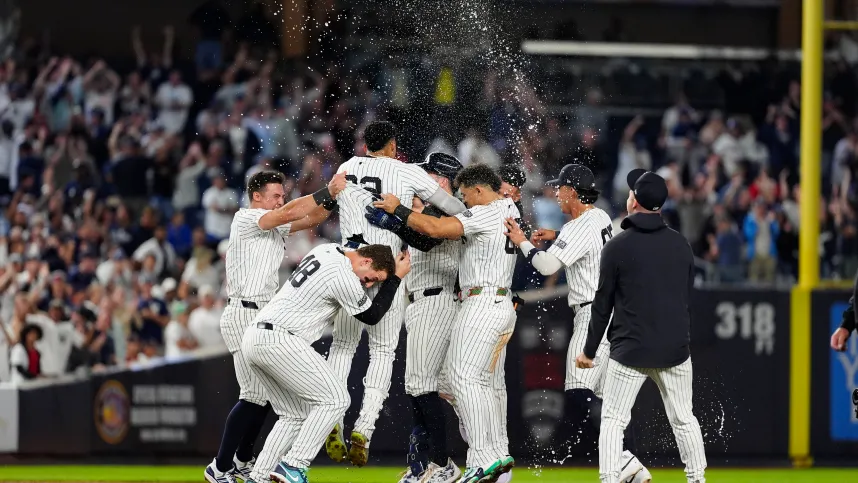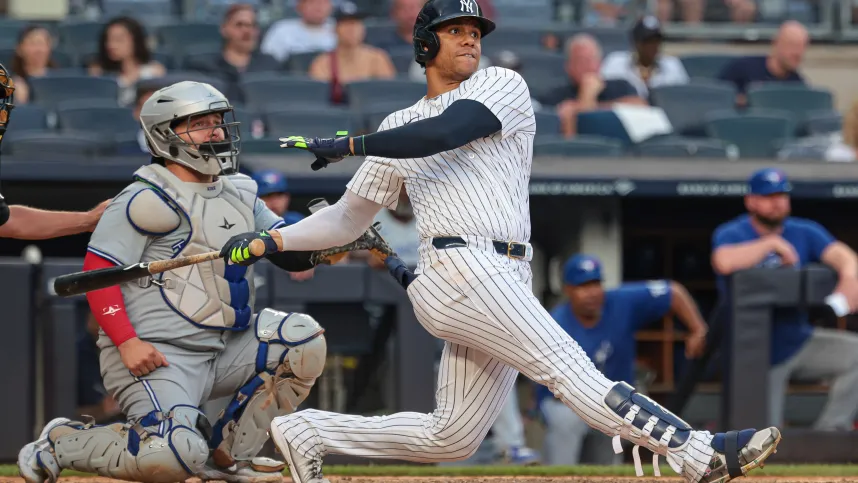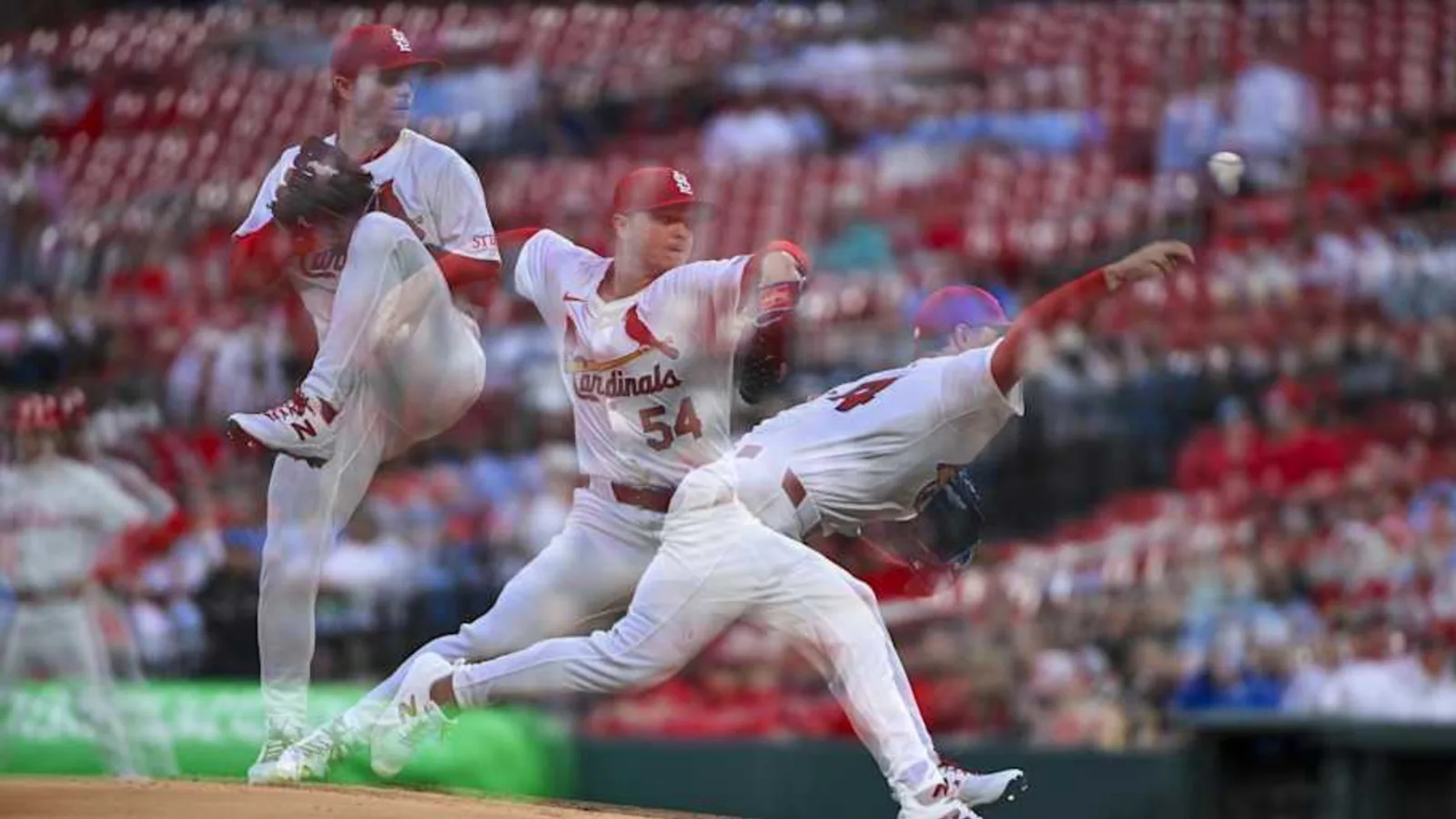This past Monday, Austin Wells appeared to have his breakout moment in the American League Rookie of the Year race, launching a go-ahead home run against the Royals in the seventh inning, sealing an important September win.
Wells smashed the ball, delivering a perfect bat flip and creating one of the team’s most thrilling moments in recent memory. If MLB awards were like the Academy Awards, this home run would be the highlight reel played when his name is announced.
Since that homer, the narrative around Wells’ candidacy has shifted, positioning him as a strong favorite for AL Rookie of the Year. There’s good reason for this: since moving to the cleanup spot on July 22, he has posted a 144 wRC+ with a slash line of .296/.366/.507, not to mention his impressive framing metrics.
Luis Gil, once the frontrunner for the award, saw his momentum fade after a rough five-game stretch in June and July, followed by a stint on the IL in late August. In June, a poll of 30 MLB.com writers gave him 26 first-place votes, and he led again in the July 1 update.
However, by August 2, his lead slipped, with Baltimore’s Colton Cowser surpassing him in first-place votes, 16 to Gil’s 14. In the most recent poll at the end of August, Gil had only two first-place votes, tied for fourth with Boston’s Wilyer Abreu. Cowser (17 votes) and Oakland closer Mason Miller (9 votes) led the field.
Despite this, Gil is not out of the race. Since returning from the IL, his fastball has regained its zip, and he might make a late surge. After missing over two weeks with a back strain, Gil returned with a dominant six-inning shutout performance at Wrigley. However, Wednesday’s game against Kansas City wasn’t as sharp, though he battled through five innings, allowing just one earned run.
With two likely starts remaining, Gil’s strongest numbers include a 3.18 ERA (18th among pitchers with 130 innings or more), a 10.35 K/9 rate (12th), and a .182 batting average against. However, his peripherals—3.67 xERA, 3.82 FIP—indicate some pitching luck, supported by a .238 BABIP and an 8.2% HR/FB rate.
Comparing pitchers to position players is tricky, but it’s essential in the Rookie of the Year race. For example, Gil’s 129 ERA+ slightly outperforms Abreu, Cowser, and Wells, but all three provide added value on defense.
Looking at value stats, Baseball-Reference WAR has Gil at 3.4, while FanGraphs WAR puts him at 2.5. While FIP and expected numbers help predict future success, I lean on Bill Parcells’ line: “You are what your record says you are.” Gil, despite some underlying concerns, has done his job—preventing runs.
If Gil finishes strong, he’d be the first starting pitcher to win Rookie of the Year since Michael Fulmer, excluding two-way star Shohei Ohtani. Voters typically don’t favor position players over pitchers unless there’s a clear performance difference—like Pete Alonso’s 52 home runs in 2019.
It’s worth wondering if Gil’s dominant May stretch, where he posted a 0.70 ERA across six starts, might have made a difference if it had come later in the season. Wells, meanwhile, has excelled in both hitting and defense, particularly with his framing, which Baseball Savant values at 11 Run Value. His increased playing time down the stretch has only boosted his candidacy.
Ultimately, Gil, Wells, Abreu, Cowser, and Miller all have valid cases for Rookie of the Year. While a deeper analysis will come after the season, it’s been a pleasant surprise to see both Gil and Wells emerge as frontrunners, especially considering no one predicted them as contenders before Opening Day. It’s a miss we’re all happy to accept.



